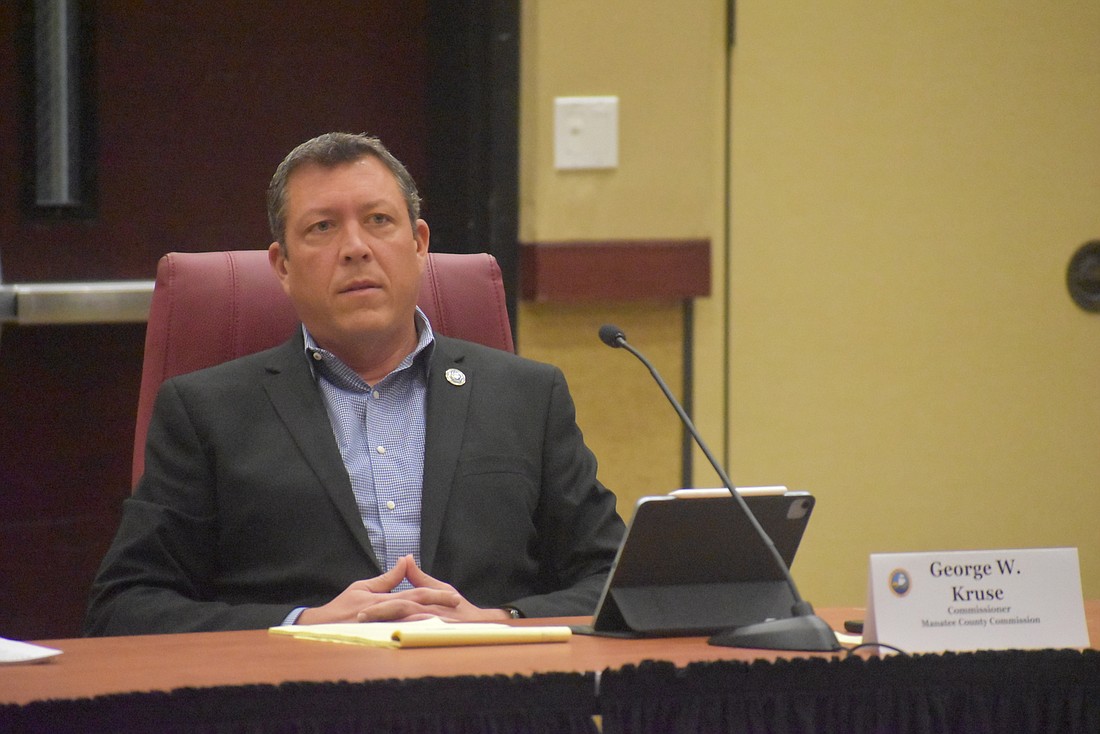- April 26, 2024
-
-
Loading

Loading

Manatee County commissioners say they hear it often.
When a controversial agenda item is on the docket, it is often accompanied by at least one citizen's complaint that commissioners are jamming the item through for approval without giving the public enough time to learn about it.
“By cramming it down people's throat at the last minute, it almost seems like we're hiding that information,” Commissioner George Kruse said.
Some commissioners hope a change enacted the first week of March will provide more transparency.
Manatee County started providing meeting agendas to citizens and commissioners about six days earlier than they were previously. Now, agendas are posted on Manatee County’s website two Fridays before the meetings with which they correspond, which is usually 11 to 13 days ahead of time.
Previously, agendas were generally posted on Thursdays the week before the meetings with which they correspond, which was usually five to seven days ahead of time. However, they were typically posted in the afternoon or evening. This essentially left interested citizens four days, including the weekend, to review the agenda ahead of a Tuesday meeting.
“The agenda for (Feb. 23) was 1,700 pages long,” Commissioner George Kruse said. “You can’t expect people to use their weekend to review these. If 90% of that, or even if 50% of that, is known well in advance, there's no reason not to give people at least a draft outline of the things that are coming up on this agenda in seven, 10, 14 days in advance. ‘Here's some of the documentation. Feel free to start looking at it if you want.’”
The new schedule will give citizens more time to ask commissioners questions or provide feedback about agenda items. Baugh said the extra time for communication could allow citizens to come to meetings better prepared or have their questions answered ahead of time so they don’t even have to go to the meetings.
In the past, Kruse said he received many emails from residents late on Sunday, which gave him little time to consider them and respond while also balancing his own review of the agenda and other responsibilities. Often, he said, citizens ask intelligent and thought-provoking questions that help him see a situation more clearly from their perspective.
“We're only seven people, and none of us are the smartest people in the room,” Kruse said. “None of us can legitimately claim that we can see every angle and every aspect of everything that comes before us.”
Kruse also said many people don’t read newspapers or other local news sources. This means they won’t learn about significant agenda items right away, even ones that affect them, such as decisions on nearby commercial development. But if you give it enough time, they might hear through social media or word of mouth.
Ultimately, Baugh said the change is another example of the new commission’s desire to change the way Manatee County government is run. She said some past commissioners didn’t seem to care about being accessible to constituents and instead rubber-stamped any item brought forth by county staff for approval.
Baugh said it’s especially important for commissioners to keep a finger on the pulse of their specific constituents, because the commission needs representative feedback from those commissioners on district-specific issues. Ultimately, she believes this change will help them do that.
“It doesn't mean that every single thing that the citizens might want will happen,” Baugh said. “We have around 411,000 people in the county. So it's still going to be up to the board to try and make decisions. But we need to be able to be more familiar with our constituents to try and make decisions based on what the citizens want.”